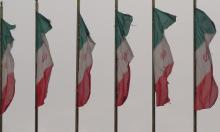Russia demands to change OSCE
European foreign ministers on Tuesday were debating future strategies for the top trans-Atlantic security organization, faced with Russia's demand for change. Representatives from 55 member nations of the Organization for Security and Cooperation in Europe, or OSCE, hoped to issue a declaration later in the day despite having failed to do so at two previous meetings.
The OSCE member Russia has criticized the OSCE in the past year. Foreign Minister Sergey Lavrov on Monday accused the organization of bias and demanded it commit to "thorough reform." The OSCE monitors elections, democracy and human rights across the globe.
Russia and others have accused the OSCE of applying "double standards" by focusing on promoting democratic institutions in Eastern Europe, but ignoring abuses elsewhere. It also complained the OSCE overemphasizes human rights and democracy-building, while neglecting security and economic issues.
U.S. Undersecretary of State, Nicholas Burns, insisted Monday that the West was obligated to help strengthen democracy in places like the Balkans and Caucasus. "We don't impose democracy. Democracy is a natural right of all people," Burns said.
Lavrov also criticized the OSCE's record as Europe's top election monitoring agency, whose conclusions are widely considered by the West as definitive. The OSCE declared elections in several ex-Soviet republics flawed. In Ukraine and Georgia, its criticism led to new polls, won by pro-Western leaders.
Russia and the U.S. officials exchanged harsh words at last year's OSCE ministerial council in Bulgaria as well. At that meeting participants failed to agree on a declaration, informs the AP. N.U.
Subscribe to Pravda.Ru Telegram channel, Facebook, RSS!




